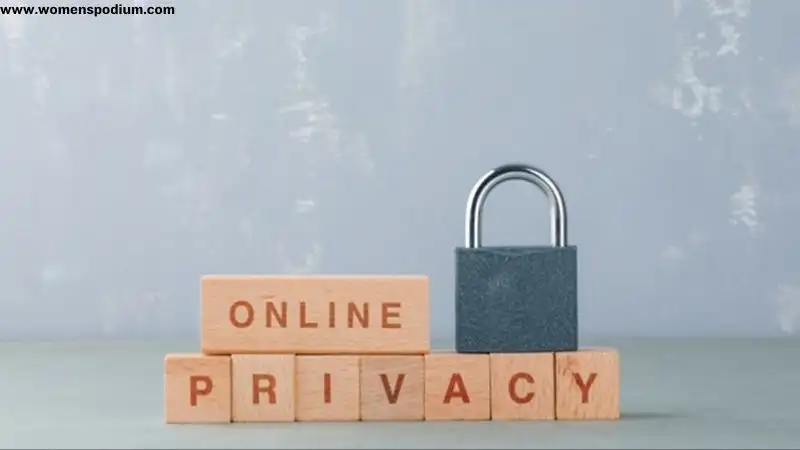
Nowadays, kids spend most of their time online. Whether they are studying on the computer at home, watching videos on tablets, or chatting or playing on their phones, the online risks are at a higher end. These online risks are one of the potential foundations for many other health and behavioural issues in young kids and teens. Parents always worry about how they can ensure themselves of internet safety for children and prevent them from danger.
How to Explain Internet Safety for Children?
School-going kids love to watch their favourite TV shows and play games on the internet whenever they can. Being a parent, you must teach the use the internet to your kids. The fastest-growing group of internet users is kids up to 10 years old; that’s why parents must guide their children about internet usage in a friendly manner. You can do this while casually talking and interacting with your child. Parents find it challenging to think of a concise, memorable message to teach their kids to keep them safe online. However, we are going to share some tips for parents to ensure internet safety for children.
9 Tips for Parents to Ensure Better Internet Safety for Children
1. Give a Head-up About Privacy

You cannot keep an eye on your child’s activity all the time. Therefore, it is better to give her a friendly heads-up about the privacy of personal information. Tell her not to type in her home address or family’s info without asking you first. Guide her not to share her picture, phone number, or social networking user IDs with strangers. Children get influenced quickly, so ask them not to become friends with any unknown person. If you avoid discussing such things with your child, they might not realize they are at risk.
2. Use Online Screening

For younger kids between the ages of 6-8, parents must use search engines’ settings to screen and prohibit the display of violent and inappropriate content. The screening of online websites and videos will make it a lot easier for you to prevent many bad encounters with other scam websites for your children.
3. Install Child-Friendly Browser

If your child is out of your sight in his room, or you need to get back to work or finish home chores, it is always better to let him use a safe search engine with child-friendly browser settings. Like, put an age limit or the type of content your child should come across at their age.
4. Prevent Certain Apps

There are tons of apps out there on online stores. But should you trust all of them? No! Because a few out of a whole pool of apps might be a scam. Or even if they are not, data on the internet lives forever. Ask them not to download any app without discussing it with you. Most of the apps ask permission to access contacts, gallery, etc.; it can be dangerous because fake apps can take your data and misuse it, so telling your kids about apps in detail is very important.
5. Monitor Their Gaming Activities

These days, you can find many exciting games that can lure kids quite easily. Kids love to play online games. But to ensure internet safety for children, educate your child not to download any game without your permission. Some people develop gaming software to easily hack your computer’s useful data, which may become risky.
6. Create a Separate Child Account

It is not wise to let your child use the same device or account you use for personal work, or have personal social media accounts. It is better to create a separate account by putting the necessary details and the age of your child, so that you wouldn’t have to screen content yourself. Websites will do it for you.
7. Talk About Online Content

It is best to talk about the trends or news, and the information your child sees on the internet. Have a casual conversation about the websites they visit and the content they come across. And avoid making it sound like an interrogation. Tell them what websites you go to as well. They will develop enough trust to tell you.
8. Demonstrate, Not Command

Follow the safety measures yourself and avoid putting personal information on unknown sites. Kids learn from their parents. And by showing the safe methods, you are automatically teaching them to comply with internet safety rules. Even if you don’t always command them, they will have an innate cautious sense of privacy fed into their mind.
9. Use the Internet Together

To train your kids to screen the content better online as they grow up, you should discuss everything with them. The best way is to use the internet together with them from time to time. This will naturally let you know what they are learning, and if some scam or bullying is going on.
Risks Regarding Internet Safety for Children
The most common and potentially dangerous risks are:
1. Cyberbullying

Online games and social media are virtual playgrounds nowadays, where most of the cyberbullying takes place. When teens get on social media, they like to post stuff that can be disturbing posts or hurtful comments while sitting behind the screens. The game that was supposed to be an entertaining one might become a ground for bullying your child.
2. Disclosure of Personal Info

The first important step to having internet safety for children is to teach them not to give passwords to anyone. A single piece of personal information can let the other user hack all of your computer’s data. If you have work files on that account, you might as well lose that data.
3. Content Risks

There is a whole other world out there on the internet. The type of content your child is seeing can affect their mental health and growth. Children who are exposed to more violence can develop a potential for crime. It is better to prevent than to repent.
4. Falling for Scams

Children might easily fall for scams like sites offering free online games or prizes in exchange for their parents’ credit card numbers. Well! If you haven’t taught your kids about these luring scams, then they might make mistakes.
We can debate about the right age at which we should give the kids access to the internet or their own devices. Or we can discuss the possible health issues of children due to the early use of electronic devices. But what matters most for parents is how they can train their kids about internet safety for children. Only by proper guidance and training, your child knows and avoid the risks online.
Also Read: The worst enemy of anyone online, especially marginalized communities, is cyberstalking. Knowing about ‘what is cyberstalking’ is a must for everyone; let’s dig into it more.






Beautifully written, I definitely needed these tips nowadays the internet is one of the things we introduced to our kids at very early stages, and get worried afterward about its safe use.